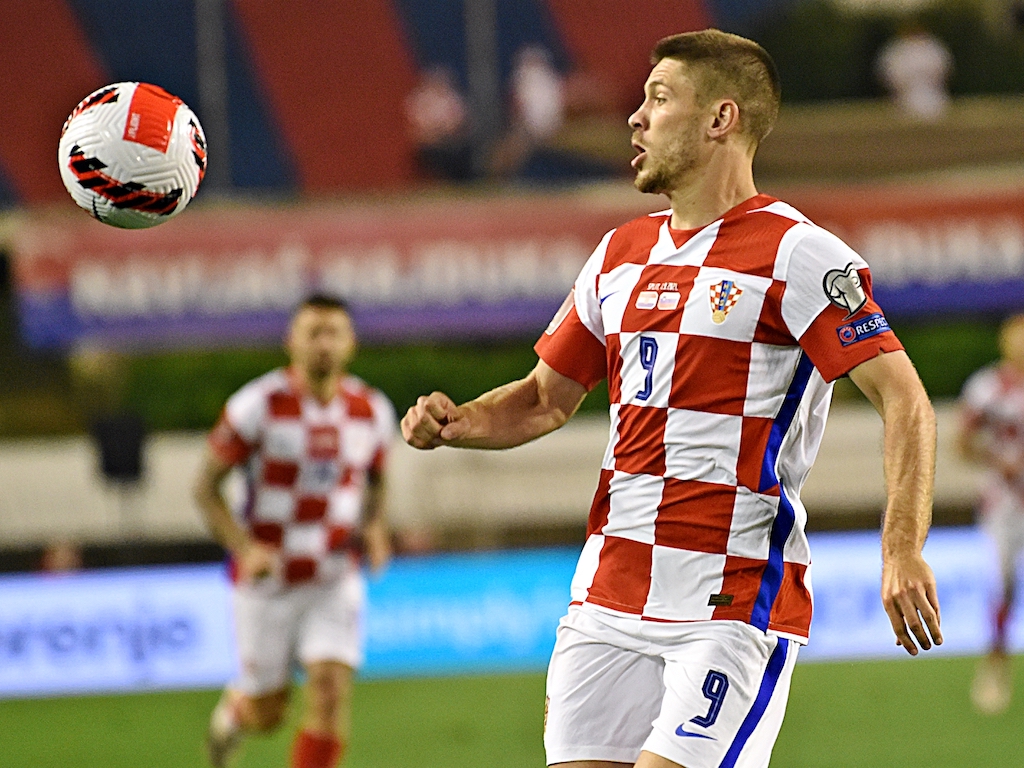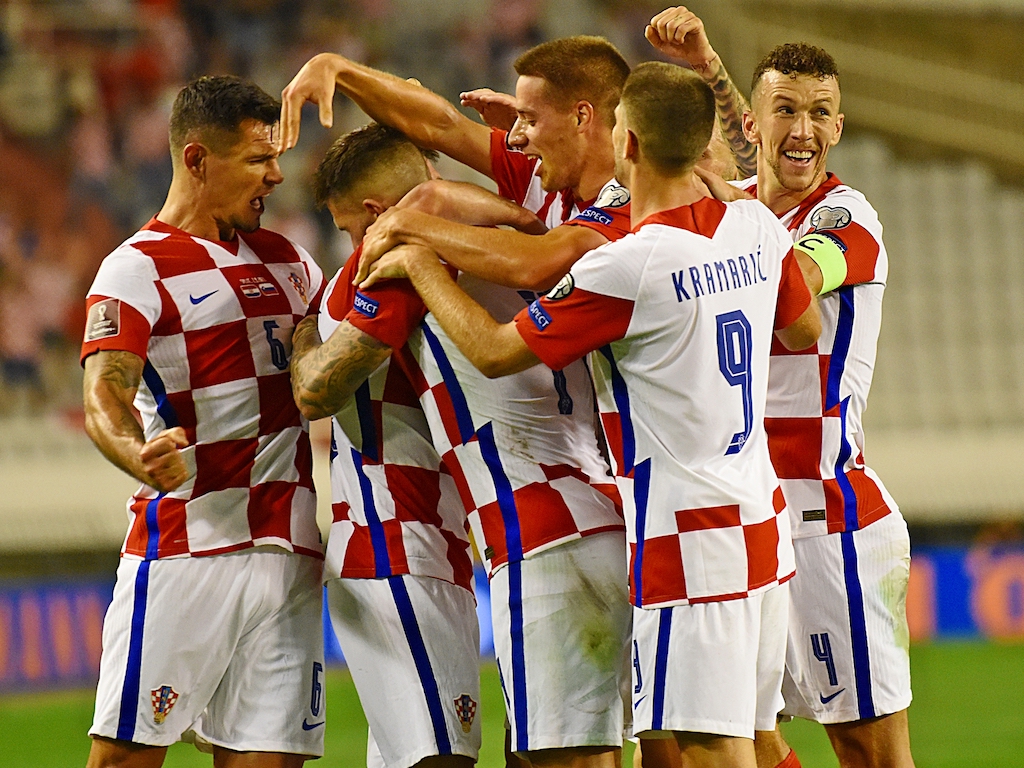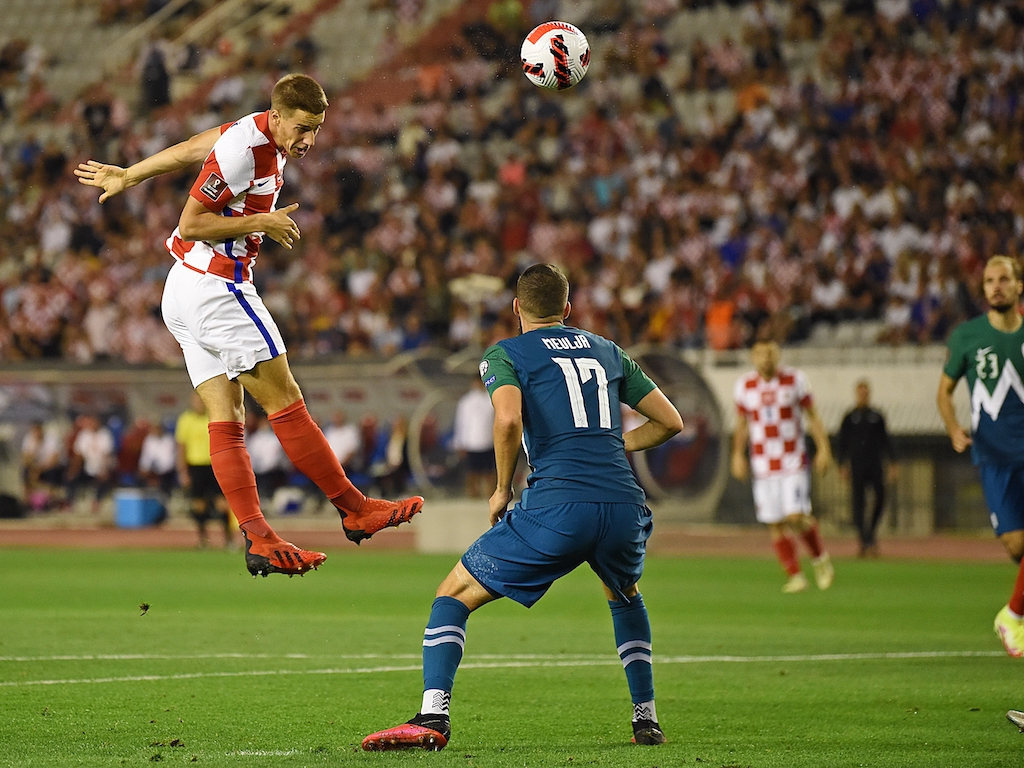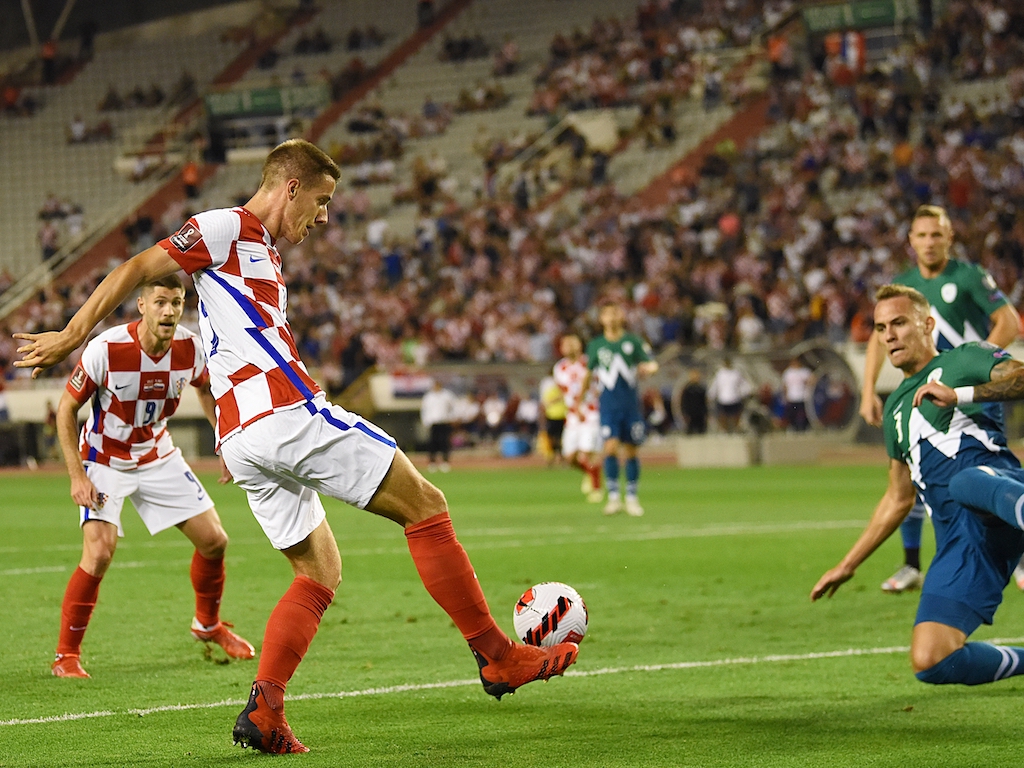Croatian Liberato Association Develops Interactive Map for Disabled People
September the 8th, 2021 - The Croatian Liberato Association has been engaged in the praiseworthy project of designing and developing an interactive map for the easier and safer movement of people with various disabilities.
As Novac/Ljubica Vuko writes, back in 2019, Stipo Margic won the first prize for the "Capallble" project at the StartIT @ PICS academy, organised by Split-Dalmatia County as part of the ICT County project. Back then, he was a student of information technology at the University Department of Professional Studies in Split, this summer he defended his final thesis in the field of Internet programming and today he is a professional information technology engineer.
His motto is that ''the world is without borders" and he tries to help other people with disabilities feel the same. Immediately after winning at the StartIT Academy, he and two other colleagues founded the Croatian Liberato Association in December 2019. They wanted to develop a digital map for the safer and easier movement of people with disabilities, to have all the information about accessibility they need and to feel much more safe. They wanted to create routes on the map in order to avoid obstacles and potential injuries, and increase their quality of life. They have succeeded in that, and they are still developing the project.
''I founded the Croatian Liberato Association with two colleagues from my faculty, Mija Matijevic and Ivan Ivancevic, who is no longer involved in the work of the association due to his own private obligations. Our first project is now known as the Liberato Map, an interactive map with information on the accessibility of locations for people with disabilities. With it, we wanted to increase the number of people with disabilities engaged in everyday activities, primarily young people in higher education. Currently, the association has 20 members, and in addition to my colleague Mija and me, final year sociology student Ivana Vladusic is also involved in the daily work of the association,'' explained Stipo Margic, president of the Croatian Liberato Association.
He himself knows well what all people with disabilities face on a daily basis. He ended up in a wheelchair owing to a neurological disease and faced enough obstacles of his own. Very often, as noted on the Croatian Liberato Association’s website, narrow spaces restrict people with disabilities from accessing basic services and goods. Now, in just a few clicks on the screen, people can check if the space they're looking for is accessible to them or not.
The interactive map has been available to the public since the beginning of 2020, first the locations in Split are included, and now it already has maps for three cities. Locations in Omis and Trogir are also included.
The director of the Croatian Liberato Association explained just how they get all the information, with whom they cooperate and whether they're satisfied with the cooperation.
''For locations that are in city, county or state ownership, we first contact them, and for the rest we try to cooperate with local associations such as the Association of the Physically Handicapped TOMS from Trogir, the Agape Association from Omis, while in Split, we have cooperation with the County Association of the Blind, Info zone, the Association of Persons with Disabilities Split (UOSIS), and the Association ZNAKujmo svi,'' stated Stipo.
Speaking about his personal experience and the obstacles he himself encountered, Stipo says that as a person and a student with a disability, his biggest problem, as is also probably the case with others, was bureaucracy, meaning tonnes of paper, and the general ignorance of people.
''As far as interaction is concerned, I personally think that people with disabilities should be louder and say what they need, where they are and what their shortcomings are, etc. because most people without disabilities don't see that and can't do anything until it is pointed out to them. I think that the problem will always be signs and and improper parking until people's consciousness changes,'' stated Stipo Margic.
When asked if other users of the Croatian Liberato Association's innovative interactive map contact them, what their experiences are and what Liberato has made easier for them, Stipo says:
''We're mostly contacted by foreigners or young parents, who point out that they no longer have to send e-mails, call or pray to find out some information about accessibility for themselves or their child(ren). The main question is related to a mobile app and whether there is a possibility to create it. We're very much trying to make the mobile app see the light of day soon, all with the help of the University of Split and the cities where the application is used,'' explained the president of Liberato.
Can Liberato grow into a startup? He answers this question by explaining that he doesn't see LiberatoMap as a startup, but that some other projects of the Association could grow into startups.
''We give our full support and support to colleagues and members of the Association through the Student Entrepreneurship Incubator Kopilica (SPIK @) in the technical aspect while Mr. sc. Ivona Jukic and her colleagues take care of the economic support for students in the development of their ideas,'' said Stipo.
In terms of his personal development and the development of the Croatian Liberato Association, in addition to winning the StartIT competition back in 2019, their participation in the Google Adwards and in the Student Entrepreneurship Incubator at the Faculty of Economics, the University of Split was significant.
They also participated in the Academy of Regional Development and EU Funds, which was initiated by the competent ministry. They are currently members of the incubators SPIK @ and SplitX Hub, accelerators for startups, and more recently - Digital Dalmatia.
The support of the University Department for Professional Studies is extremely important to the Croatian Liberato Association, which also provided them with space to work and the support of the Student Union and the Student Centre.
For more, follow Made in Croatia.
2022 World Cup Qualifiers: Croatia Tops Slovenia 3:0 at Poljud!
September 7, 2021 - Croatia tops Slovenia in their final 2022 World Cup qualifier this month thanks to goals by Marko Livaja, Mario Pašalić, and Nikola Vlašić!
Croatia met Slovenia in their final 2022 World Cup qualifier this month at Poljud Stadium in Split. Around 20,000 spectators were expected for this match, though only those with COVID certificates were able to enter the stadium. Split Police have been vigilant since the morning to avoid any incidents.
Recall, Croatia already played two qualifiers in the last week - against Russia in Moscow, and against Slovakia in Bratislava, taking 4 points.
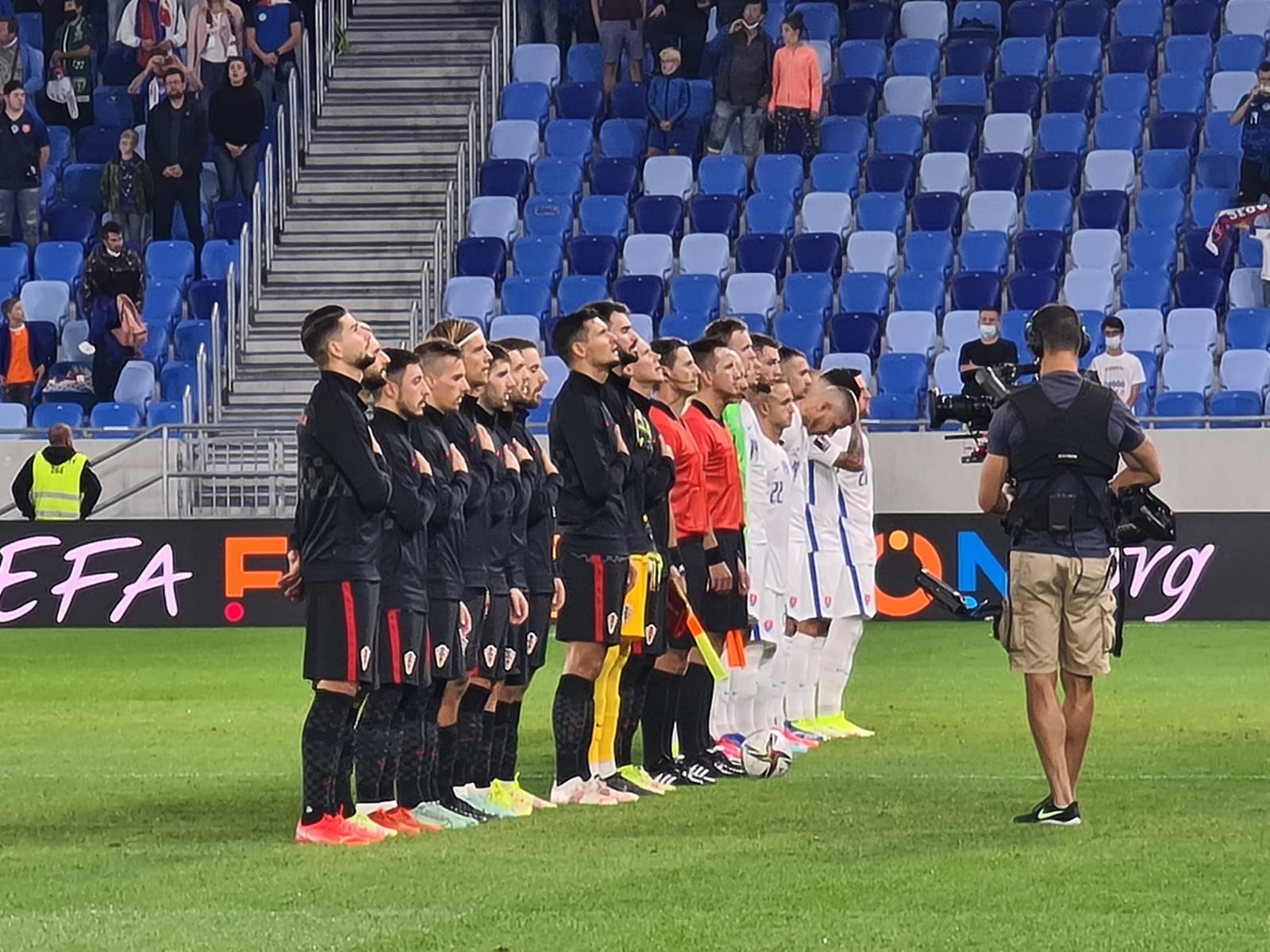
Slobodan Kadic
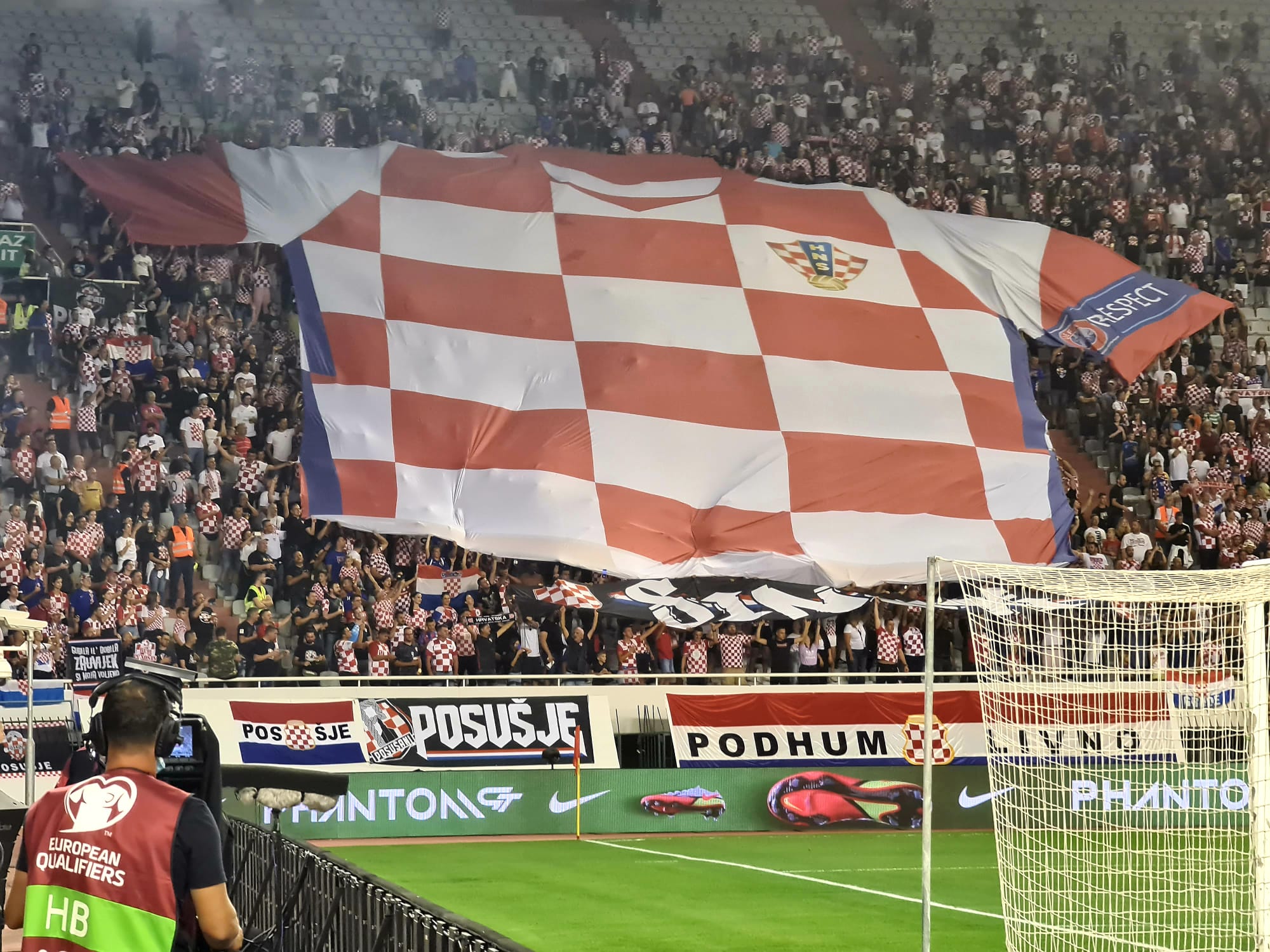
Slobodan Kadic
Lineups:
Croatia: Ivušić, Juranović, Lovren, Vida, Barišić, Brozović, Kovačić, Pašalić, Livaja, Perišić, Kramarić
Slovenia: Oblak, Stojanović, Bijol, Mevlja, Balkovec, Gnezda Čerin, Stanković, Kurtic, Lovrić, Iličić, Šeško
Croatia's first attack happened in the first minute of the match. Ivan Perišić ran the ball up the wing and shot on goal. Andrej Kramarić had a chance two minutes later which went out for a goal kick.
Another attack for Croatia in the 5th minute saw Juranović carry the ball up the right wing to find Kramarić who crossed into the box. Barašić played the ball back in from the left and Pašalić headed to the keeper.
Slobodan Kadic
Croatia's first corner kick came in the 6th minute. The ball ultimately found Barašić who shot over the goal.
Croatia's best chance came in the 9th minute - a Perišić cross made its way to the penalty box with 3 Croatia players in front of the goal.
Another incredible chance for Croatia in the 19th minute - a beautiful play between Kramarić, Perišić, and Barašić found Andrej at the top of the box, though his shot went straight to the keeper.
Another almost goal happened in the 25th minute - Oblak was out of his goal but Livaja was unable to shoot before the ball went out for a goal kick.
Livaja tried his luck and shot from 30 meters out in the 28th minute which Oblak touched out for a corner.
Then it finally happened - Hajduk superstar Marko Livaja scored for 1:0 Croatia in the 33rd minute!
Slobodan Kadic
Pašalić had a chance two minutes later off a corner but headed to the Slovenia keeper.
A cross in from Juranović in the 37th minute found Perišić's head but was an easy save for Oblak. Perišić dribbled up the left wing a minute later but shot over the goal. Oblak made an unbelievable save in the next minute to keep it 1:0.
Croatia was playing really beautiful football, which was a huge improvement from their game against Slovakia. The momentum from the home fans was certainly helping. The match ended 1:0 for Croatia at the half.
Croatia's attacking game did not dwindle to start the second half. Balls were launched into the box from both sides, though Oblak always seemed to find his way there.
Slobodan Kadic
Slovenia was having a hard time making it past the halfway line in the first 10 minutes of the second half.
Slovenia subbed in Hajduk player Jan Mlakar in the 53rd minute.
Zlatko Dalić made his first sub in the 57th minute - Marko Livaja came out for Nikola Vlašić.
Kova dribbled through the Slovenia defense in the 60th minute which went out for a corner.
But it didn't take long for Croatia to get their second goal. A Perišič cross found Pašalić who scored for 2:0 in the 66th minute! Playing at Poljud was certainly giving these former Hajduk stars an extra push.
Slobodan Kadic
Mateo Kovačić was subbed off for Luka Ivanušec, Andrej Kramarić came off for Mislav Oršić, and Dejan Lovren came off for Duje Ćaleta Car in the 76th minute.
Nikola Vlašić nearly had his chance in the 81st minute after dribbling to the goal line but was unlucky in the end.
Ivan Perišić was subbed off for Antonio Čolak in the 85th minute.
Oršić and Ivanušec both had chances in the 88th-90th minutes, but the game remained 2:0. Four minutes of extra time were added.
A Hajduk hattrick tonight became a reality - Nikola Vlašić scored in the final minute of the game for 3:0!
To follow the latest sports news in Croatia, follow TCN's dedicated page.
To learn more about sport in Croatia, CLICK HERE.
Three More Croatian Restaurants Awarded Michelin Star
ZAGREB, 7 Sept, 2021 - Three more Croatian restaurants have been added to the prestigious Michelin restaurant guide, bringing the total number of Croatian restaurants with one star to ten, the Croatian Tourist Board (HTZ) announced on Tuesday following notification from Michelin.
The three new restaurants that have been awarded a single Michelin star are Nebo in Rijeka (housed in the Costabella Hilton Hotel), Alfred Keller in Mali Lošinj and Agli Amici in Rovinj. They joined the seven restaurants that have retained their stars - Boškinac in Novalja, LD Terrace in Korčula, Pelegrini in Šibenik, 360º in Dubrovnik, Monte in Rovinj, Noel in Zagrebu and Draga di Lovrana in Lovran.
In addition, seven more restaurants have been awarded the special Bib Gourmand designation for their remarkable menus at affordable prices. There are now 13 restaurants in Croatia with this designation.
The new Bib Gourmand restaurants are Konoba Mate (Korčula), Dunav (Ilok), Konoba Fetivi (Split), Izakaya by Time (Zagreb), Vuglec Breg (Krapina), Konoba Malo Selo (Buje) and Alla Beccaccia (Valbandon).
All the restaurants are listed in the new edition of the Michelin guide for Croatia for 2021. Another novelty in the new edition is the Michelin Green Star designation, which has been awarded to the Zinfandel's restaurant, housed in the Esplanade Zagreb Hotel, to acknowledge its commitment to sustainable and environmentally-friendly gastronomy.
Commenting on the news from Michelin, Tourism and Sport Minister Nikolina Brnjac said that enjoying food and drink is an important part of the tourist experience, adding that Croatia, as a country with a rich gastronomic tradition, should invest more in its promotion and development in the future.
HTZ Director Kristjan Staničić said that the award of new Michelin designations is a huge success for the Croatian gastronomic scene and very important for the country's tourist industry, considering various restrictions surrounding the coronavirus pandemic.
For more about lifestyle in Croatia, follow TCN's dedicated page.
Zagreb Stock Exchange Indices Almost Unchanged
ZAGREB, 7 Sept, 2021 - The Zagreb Stock Exchange (ZSE) Crobex index increased by 0.16% to 1,962 points on Tuesday, while the Crobex10 weakened by 0.01% to 1,204 points.
Regular turnover was HRK 5 million.
The most traded stock was the Arena Hospitality Group, turning over HRK 993,000. It closed at HRK 322 per share, up 1.9%.
Thirty-seven stocks traded today, with 14 gaining in price and 12 losing, while 11 were stable.
(€1 = HRK 7.492048)
For more about business in Croatia, follow TCN's dedicated page.
UNICEF: Children Under 13 in Croatia Have Profiles on Social Networks
ZAGREB, 7 Sept, 2021 - Two-thirds of young people surveyed in Croatia (61%) opened a profile on social networks before they turned 13, a UNICEF survey shows, warning that young people leave their mobile phone numbers and photographs online without any control.
Even though profiles on social networks are not allowed for children under the age of 13, 5% of respondents opened a profile when they were aged 7 or 8 and 16% had one at age 9 or 10, UNICEF warned after conducting the survey in collaboration with the HURA market communications NGO.
The survey was conducted among 1,092 children and young people, showing that children opened profiles on social networks at a very young age and that they left their mobile phone numbers and photographs online without any obstacles, so they can access free online content such as music or videos.
One-fifth of the children surveyed said that they had noticed inappropriate ads for adults on social networks and websites, including pornography and explicit photographs, as well as adds for alcohol, cigarettes, gambling and so on.
A significant number gave their mobile phone number (35%) or photographs (18%). The survey also showed that more than one-third of those surveyed (37%) didn't know what the role of cookies was on social networks.
When it comes to influencers, the majority of those surveyed (88%) said that influencers did not impact their purchases.
UNICEF has issued recommendations for responsible digital marketing and advertising towards children, including the need to protect the personal data of children and young people and to develop media and digital literacy among children and parents.
Children must not be exposed to ads for food with high fat, sugar and salt content or to ads for alcohol, tobacco, lotteries, medication, aesthetic operations while influencer promoted products on digital media always have to be advertised in a clear manner for children, UNICEF underscored.
For more about lifestyle in Croatia, follow TCN's dedicated page.
Lučko Anti-Terrorist Unit Marks 31st Anniversary
ZAGREB, 7 Sept, 2021 - The Lučko Anti-terrorist Unit, which earned its fame on all Croatian battlefields and handles the most complex police tasks today, on Tuesday marked its 31st anniversary with a demonstration exercise.
Before the exercise, wreaths were laid and candles lit at a memorial to the unit's fallen members, with Interior Minister Davor Božinović attending.
"ATJ Lučko was the first organised unit and the first Croatian armed formation which protected the constitutional order, the state leadership, and which earned its wartime fame on all Croatian battlefields," he said, adding that this elite unit had always been on the front lines and engaged in the toughest operations.
During the 1991-95 Homeland War, more than 350 people were in the unit, 19 were killed and 52 were wounded, the minister said.
He said that in peacetime the unit showed its new equipment every year, such as the best specialist vehicles.
Božinović said the incumbent government had invested considerable funds in the police, including European funds, and that HRK 144 million was invested in the special police alone in the past four years.
Procurement will continue and there are plans to equip ATJ Lučko with three new multipurpose helicopters, he added.
The minister said the government cared a lot about the unit and that its elitism was not fake as the unit was not closed but there to help civilians in various disasters. The helicopters, he added, will be made available to the civil protection system.
"Our special forces do not make only Croatia proud. They have been recognised as members of ATLAS and their colleagues across the EU have a high opinion of them," said Božinović.
The ATLAS network is an association of the police tactical units of the EU's 27 member states established following the terrorist attacks of 11 September 2001 upon the initiative of the Police Chiefs Task Force.
For more about politics in Croatia, follow TCN's dedicated page.
Franak Association Supports Judge Dobronić's Election as Supreme Court President
ZAGREB, 7 Sept, 2021 - The Franak association on Tuesday called on its members to send emails to members of parliament ahead of a parliamentary vote on President Zoran Milanović's candidate for Supreme Court president, Radovan Dobronić, expressing support for his election.
Franak brings together former holders of loans pegged to the Swiss franc whose loans were converted to euro-denominated loans.
On 4 July 2013, the Zagreb Commercial Court delivered a ruling in favour of the Consumer Protection Association which had sued eight banks with regard to the Swiss franc foreign currency clause and their unilateral decision to increase interest rates.
The judgement was handed down by Judge Dobronić, who said at the time that the banks had violated consumers' rights by failing to fully inform them about all the parameters necessary to decide on taking loans.
The ruling on the legal nullity of the currency clause in contracts on loans pegged to the Swiss franc was later upheld by the High Commercial Court.
Eight years ago, Judge Dobronić gave hope to all holders of CHF-indexed loans, the Franak association said today.
"We believe that we do not have to explain in great detail the reasons why we are confident that Judge Dobronić is the only candidate who can launch the necessary changes in the judiciary. We believe that by expressing our support for him we can send a message to members of parliament and let them know who is the citizens' choice," Franak said.
In a draft message of support for Judge Dobronić, which can be sent by citizens to members of the parliamentary Judiciary Committee, which is to interview candidates for Supreme Court president, and their party groups, Franak says: "By supporting Judge Dobronić for Supreme Court President you will restore citizens' hope and faith in judicial autonomy and a just Croatia."
The Judiciary Committee is to interview the candidates on 9 September.
For more about politics in Croatia, follow TCN's dedicated page.
Awareness Campaign About Women's Unpaid Household Work Launched
ZAGREB, 7 Sept, 2021 - A network of civil society organisations called "Fourth Shift - Invisible Work" on Tuesday launched a campaign to raise awareness of women's unpaid household work and encourage the creation of public policies to achieve a work-life balance for women and men.
The campaign is part of the project "The impact of public policies on the quality of family and working life and on the demographic picture of Croatia," led by the women's civil society organisation B.a.B.e.
The value of the project is HRK 3.6 million (€480,000), of which 85 percent is provided by the EU and the rest by the government. Its duration is 36 months, and it is being conducted in Zagreb and eight other regions.
The organisations have invited women to join the campaign by sharing their stories on what happens when they stop doing their everyday chores. They can share their stories and photographs on the Instagram and Facebook accounts of B.a.b.e. and the Twitter account of Iskra B., or if they want their post to remain anonymous they can send an email to This email address is being protected from spambots. You need JavaScript enabled to view it..
The organisations wonder what kind of chaos would happen if women in Croatia stopped ironing, cleaning, cooking, doing the laundry and taking care of children. They say that such a scenario is indicated by the results of a 2017 survey carried out by sociologist Ksenija Klasnić.
The survey revealed that in 83 percent of the cases examined all or the majority of routine household tasks are performed by women, in 16.6 percent of cases partners equally share household chores, while men do housework on their own only in 0.4% of cases.
In 58.4 percent of cases, all or most work relating to child care is done by women, while men take care of children on their own only in 0.2% of cases. In the rest of the cases women and men share their child care duties.
For more about politics in Croatia, follow TCN's dedicated page.
Croatian World War 1 Memory: Research Project Investigating Memory and Heritage
September 7, 2021 - In a pool filled with social research supported by the Ivo Pilar Social Research Institute, Liljana Dobrovšak leads a project to explore the Croatian World War 1 Memory. The heritage and sites of memory of this horrible historical event as well as political and social background interpreting those events will be displayed on an international round table on September the 9th and 10th, 2021.
As the past always keeps inviting us back to learn something new the history books overlook, events such as World War 1 require revisiting.
Enter ''The First World War in the Culture of Memory. Forgotten Heritage'', a scientific project led by Ljiljana Dobrovšak to dig deeper into the collective memory of this dreadful war.
''The aim of the research is to initiate a scholarly debate on the ''cultural memory'' of WW1 in Croatia based on newly acquired knowledge in order to determine its causes and why it contributed to the contemporary social phenomenon of ''forgetfulness'' related to WW1 in Croatia.
The objective of this research is to examine WW1's ''cultural memory'' in Croatia back during the time of the Kingdom of Slovenes, Croats and Serbs/Yugoslavia (and in relation to the wider region and the rest of Europe) through the systematic investigation of ''memory politics'' (legal framework), ''sites of memory'' marking practices and ''commemorative practices’' ''during the war and in the interwar period,'' explains the Ivo Pilar Social Research Institute on its website.
This piece of research had two goals. The first is concerned with investigating and recording what the research calls ''sites of memory'', and to fully determine circumstances of their creation, establishment or even, in some cases, the disappearance of those places. This was done by analysing and studying actions and/or attitudes of the Croatian institutions, military and civilian associations next to the central Belgrade institutions, military and civilian organisations towards ''sites of memory'' related to the WW1 in Croatia.
The second goal concerns situating these ''sites of memory'' in a wider socio-political context. This way, researchers can investigate how, at the time, the Yugoslav legal framework of memory politics is developed towards its formation through commemorative practices on its territory, as well as, attitudes of the Yugoslav state and central institutions in Belgrade towards Croatian citizens as members of the Austro-Hungarian Army who died fighting for the Austro-Hungarian Monarchy.
''The overall result of this predominantly historical research project which is multidisciplinary in character is not only expanded knowledge about neglected and insufficiently researched Croatian cultural and historical heritage but more importantly; the acquired knowledge which enables the scientific and cultural integration of the Croatian WW1 memory, more precisely cultural memory, and its valorised historical heritage into the wider socio-historical European context,'' concludes the Ivo Pilar Social Research Institute.
The project started in 2020 and will last until 2023. However, even now, the research has moved far enough to hold an international scientific round table regarding the matter.
The round table lasting from September 9-10 will see lectures from scientists from Slovenia, Serbia, Bosnia and Herzegovina (BiH), and Croatia.
The event will be held at Ivo Pilar Social Research Institute's multimedia hall in Zagreb, at Marko Marulić Square 19. However, due to the current epidemiological measures, the number of seats at the hall is limited. But never fear, as you can follow the discussions and lectures live via a Zoom meeting (Meeting ID: 892 6457 0158 Passcode: 316547).
Read about Croatian politics and history since 1990 on our TC guide.
For more about history in Croatia, follow TCN's dedicated page.
Parliament Speaker Gordan Jandroković: "Protecting the Environment Contributes to Prosperity"
ZAGREB, 7 Sept, 2021 - Protecting the environment contributes to prosperity, particularly in tourist countries like Croatia, Parliament Speaker Gordan Jandroković said in Vienna on Tuesday.
"The pandemic has taught us the importance of multilateralism. We have to step up our global efforts in the fight against climate change and stimulate green transition and economic growth," Jandroković said at the Fifth World Conference of the Inter-Parliamentary Union's Speakers of Parliament.
"Protecting the environment contributes to prosperity, particularly in countries whose economy depends on tourism, like Croatia," he said.
Jandroković believes that "cooperation, changing the approach, and finding a balance between economic growth and the quality of life, are key to creating a sustainable future."
Croatia's National Development Strategy for the period until 2030 emphasises just that - a sustainable economy, green and digital transition and the well-being of citizens, he said.
"This isn't just about economic growth, but, more importantly, about prosperity, well-being, balance between private and business life, and the quality of life. It also has to do with access to health and welfare services, education, etc," he added.
Speaking about the COVID-19 pandemic, Jandroković said that "it will have a lasting impact on the world as we know it, causing changes to our way of living, education, communication, etc.
The Inter-Parliamentary Union is an international organisation bringing together 179 national parliaments.
During the conference, Jandroković is expected to meet with Austria's Parliament Speaker Wolfgang Sobotka on Tuesday, while on Wednesday he will meet with representatives of the Croat community in Austria.
For more about politics in Croatia, follow TCN's dedicated page.


